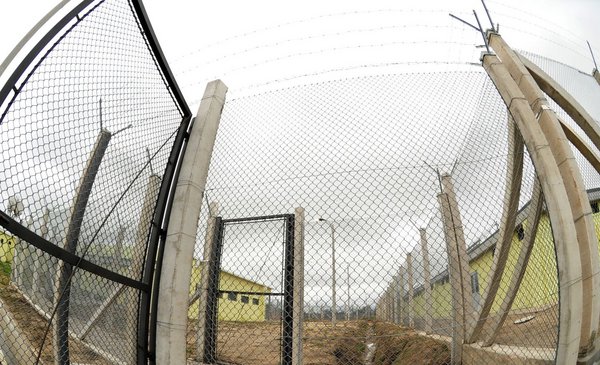Since article 74 of the law of urgent consideration came into force, which set a sentence of four to 15 years in prison for anyone who tries or manages to bring drugs into prisons, hospitals or educational centers, the Association of Public Defenders of Uruguay (Adepu ) became the voice of hundreds of women who were forced to face – in the opinion of the defenders, the unjust penalty – of four years in prison for wanting to bring a few grams of marijuana into prison, generally for their partners who they are secluded
That’s why they told their stories. In various interviews, they publicized several cases of women who had to serve long sentences for having tried to enter – most of the time, unsuccessfully – a few grams of marijuana in prison. The best known was the story of Dona Samer Fleitas (who spread Search). She is a 40-year-old woman with four dependent children, who was sentenced to four years in prison for trying to bring 56 grams of marijuana into jail at the request of her boyfriend who was in custody.
Thanks to the efforts of the Public Defender and the Parliamentary Penitentiary Commissioner Juan Miguel Petitthe Judge of Execution Verónica Pena understood that it was of order that the woman serve the sentence in house arrest. Both the lawyer and the commissioner argued that the prison measure violated international agreements that Uruguay had signed and the Penal Code itself, which indicates that the best interests of the child should always be highlighted. The crime was not serious enough to separate four children from their mother, who would be admitted to the Institute for Children and Adolescents of Uruguay (INAU).
After several months of validity of the LUC, with different arguments the defenders of Montevideo managed to get several of the prosecutors of the capital to request not to penalize this situation under article 74, but rather as a preparatory act because the crime has not materialized. The penalty for this is significantly less, it has a minimum of 16 months. The preparatory act is penalized with one third of the penalty with respect to the consummated crime.
But since last December senator Carmen Sanguinetti of the Colorado Party announced in a colloquium at the Faculty of Law that she would present a bill to reduce the penalty for this crime, some defenders have changed their strategy. Practically all the cases are resolved by an abbreviated agreement -the person assumes guilt in exchange for a reduction of up to a third of the sentence-, when this is validated before the judge, the sentence becomes final and the sentence begins .
A group of advocates consulted by The Observer They indicated that they advised their clients not to accept an abbreviated agreement (unless it is for a preparatory act) and wait to see if the bill has an agile process and they manage to benefit from it. Thus, women remain preventively imprisoned –this is later deducted from a possible sentence– and if Parliament voted on the senator’s project, they could be tried under the new law.
The president of Adepu, Victoria Muraña, indicated that it is not a group decision or that they encourage putting it into practice. “It is not a position that the defenders have adopted because we still do not see the modification clearly. It is not clear how it will be or if it will come out or not. We have not agreed on anything,” she told The Observer.
Thus, he cited the case of a defender who mentioned the issue to a prosecutor because she understood that the sentence she was asking for her client was excessive. The lawyer told him that they would not sign the abbreviated waiting for the law, but that ultimately did not happen. The Prosecutor’s Office reformulated the agreement, classified it as a preparatory act and the agreement was validated.
The projects under study
Carmen Sanguinetti’s project – but which also bears the signature of senators Pablo Lanz and Raúl Batlle – entered Parliament the last week of 2022. In the text, which was accessed The Observer, the legislators refer to the “imperative need” to gradually adjust procedural and criminal regulations to the changing social reality, always keeping in mind the impact that these regulations have on the population.
In the opinion of the legislators, there is an “excessive penalty” for the conduct to which he alludes and that had a direct impact on the increase of a certain sector of the prison population. Sanguinetti, Batlle and Lanz appeal there to figures. From September 2020 to September 2021, the overall prison population increased 9%. But the number of women prisoners increased 30%.
If approved, the attempted entry of drugs into prisons or juvenile detention centers will have a minimum sentence of 12 months in prison, for which reason it will be released. To determine the sentence, the judge must take into account the type of substance involved. He must also consider certain situations if the person responsible is a woman, for example, her need to attend to family or special circumstances of the accused that would make her imprisonment evidently harmful. In particular, the cases of defendants who are already in the fifth month of pregnancy or mothers during the first year of lactation, or if they have sole custody of minors or people with disabilities.
In any case, the bill of the Colorado senators provides for a sentence of four to 15 years in prison for cases in which the sale, facilitation or supply of drugs are directed to a person under 21 years of age or with discernment or will problems, or when the substance was supplied or applied without the knowledge of the victim.
On the other hand, in January, Búsqueda disclosed a draft bill that the Ministry of the Interior is working on to address the same issue. The text sought to “resolve a problem of interpretation” arising from the LUC. “In the case of the crime of attempting to bring substances into prisons, the court may, according to the circumstances of the case, the amount and type of substance that is the object of the crime and the seriousness of the act committed, consider the conduct as an act preparatory and consequently punish him with a third of the penalty that would correspond to the consummated crime, ”he says.
The main difference between the ministry’s project –which has not yet been presented– and that of the Colorado senators, is that for the portfolio it is not necessary to modify articles of the LUC, but to add a clarifying one.


















